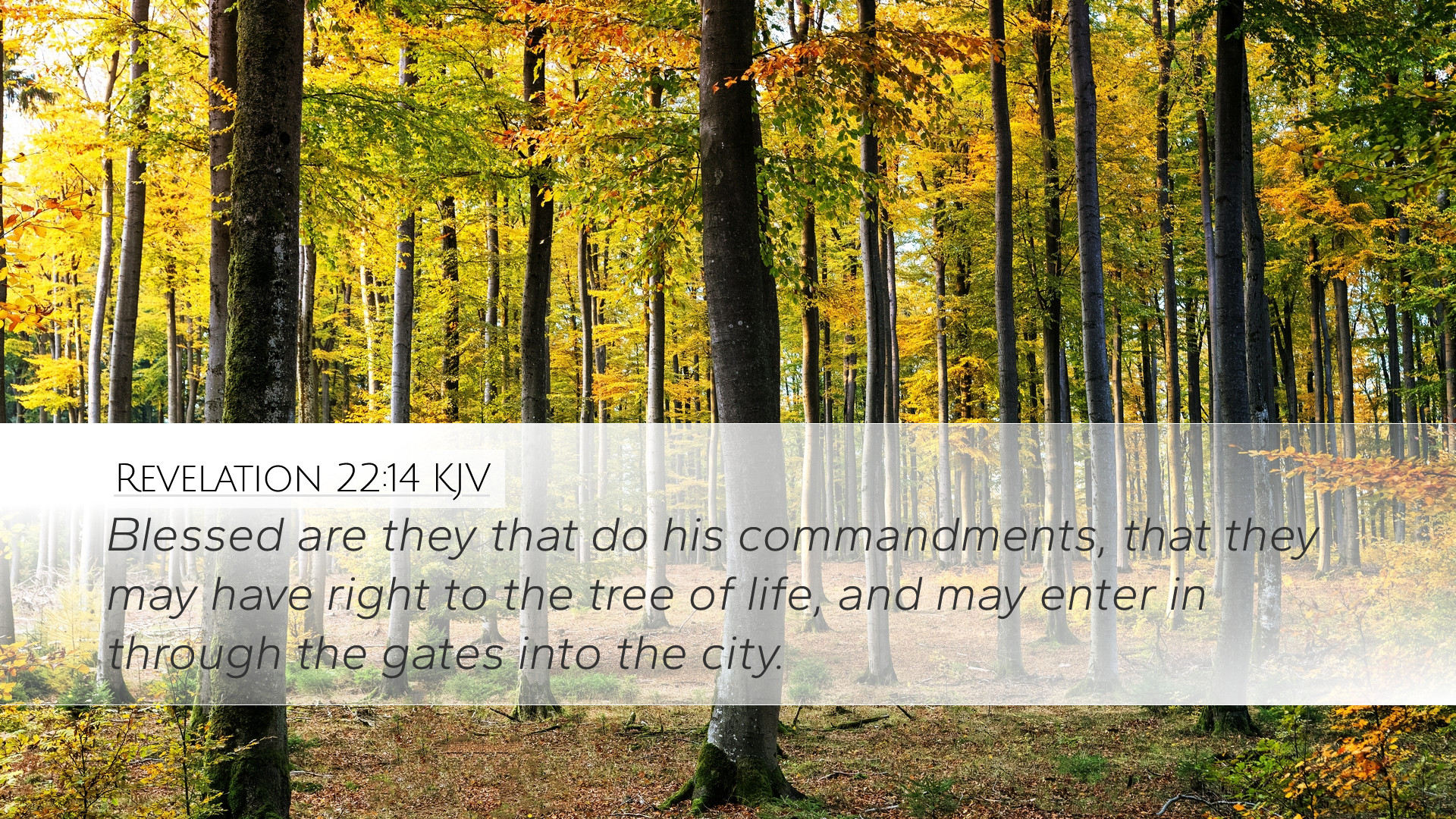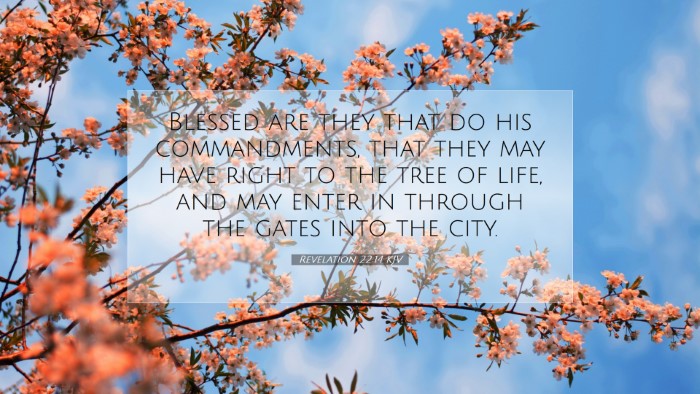Commentary on Revelation 22:14
This verse concludes the book of Revelation and serves to underscore the themes of grace, redemption, and the ultimate fulfillment of God's promise. The examination of Revelation 22:14 is crucial for understanding the eschatological hope presented in the text.
Text of Revelation 22:14 (KJV)
"Blessed are they that do his commandments, that they may have right to the tree of life, and may enter in through the gates into the city."
Theological Significance
This verse presents several key themes that are vital for theological reflection:
- Blessedness of Obedience: The verse begins with a beatitude, a proclamation of blessing that emphasizes the importance of following God's commandments.
- Access to the Tree of Life: This symbolizes eternal life and communion with God, a promise fulfilled for those who remain obedient to His will.
- Entrance into the Heavenly City: The "gates into the city" represents the ultimate fellowship with God and the community of believers, emphasizing the transformative nature of salvation.
Insights from Commentaries
Matthew Henry's Commentary
Matthew Henry interprets this verse as a clear indication of the blessings that accrue to those who adhere to God's commandments. He emphasizes that the obedience of believers not only grants them privileges in the life to come but also allows them to partake in the blessings of salvation. Henry notes that the "tree of life" resonates with the biblical narrative, harking back to its mention in Genesis as a symbol of immortality.
Albert Barnes' Notes on the Bible
Albert Barnes elaborates on the phrase "do his commandments," indicating that it refers to the faithful observance of God’s law as expressed in both the Old and New Testaments. Barnes argues that this verse encourages believers in their spiritual conduct, reassuring them that their moral efforts yield the ultimate reward of eternal life. He points out that the reference to the gates symbolizes access to God’s presence, stressing that not all will have this privilege, but only those who are righteous.
Adam Clarke's Commentary
Adam Clarke examines the implications of the phrase "may enter in through the gates into the city." He articulates that the "city" referred to is the New Jerusalem, the eschatological fulfillment of God’s promise to dwell with His people. Clarke underscores the significance of the commandments, suggesting that they are not merely legalistic exhortations but rather expressions of a loving relationship with God. He points out the transformative aspect of grace, where obedience is made possible through the power of the Holy Spirit.
Practical Applications
For pastors, students, theologians, and scholars, Revelation 22:14 provides several practical insights:
- Encouragement to Obedience: This verse serves as a reminder of the call to live out one’s faith through action. Believers are encouraged to embody their faith in practical ways that reflect God's commandments.
- Hope in Redemption: The promise of access to the tree of life and the heavenly city reassures believers of their eternal hope and the ultimate victory over sin and death.
- Community of Faith: The imagery of the city and its gates encourages a communal understanding of salvation, reminding believers of their fellowship in the body of Christ.
Conclusion
In summary, Revelation 22:14 encapsulates major themes present throughout the biblical narrative—obedience, redemption, and eternal fellowship with God. Commentators like Matthew Henry, Albert Barnes, and Adam Clarke provide invaluable insights that enhance our understanding of this pivotal scripture. As we reflect upon this verse, may we be inspired to live lives that honor God's commandments, grounded in the hope of eternal life and community with our Creator.


